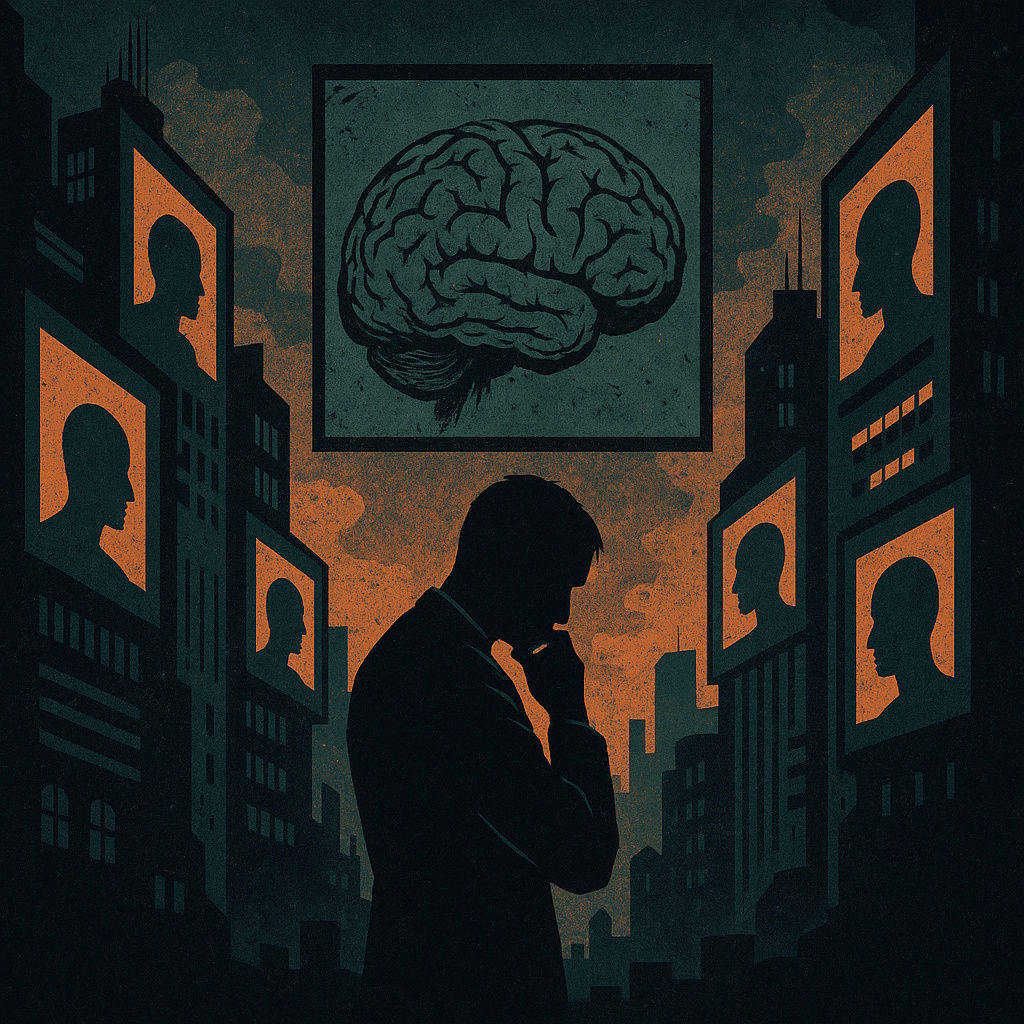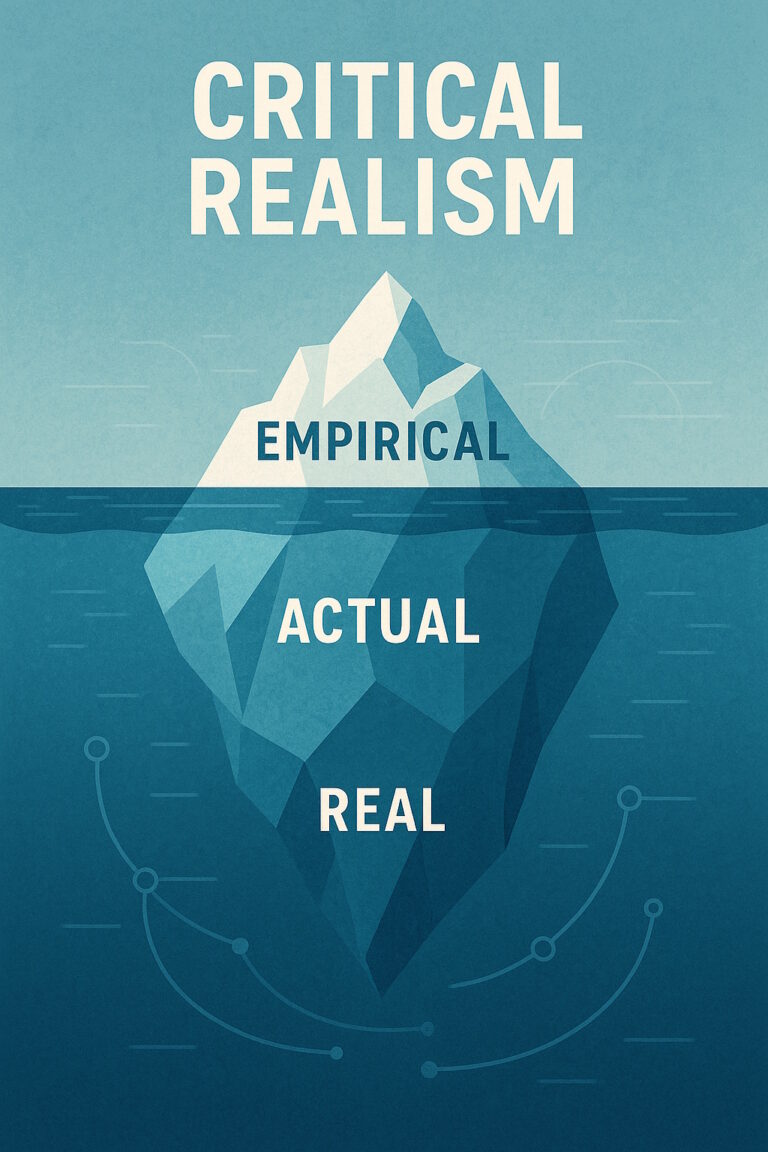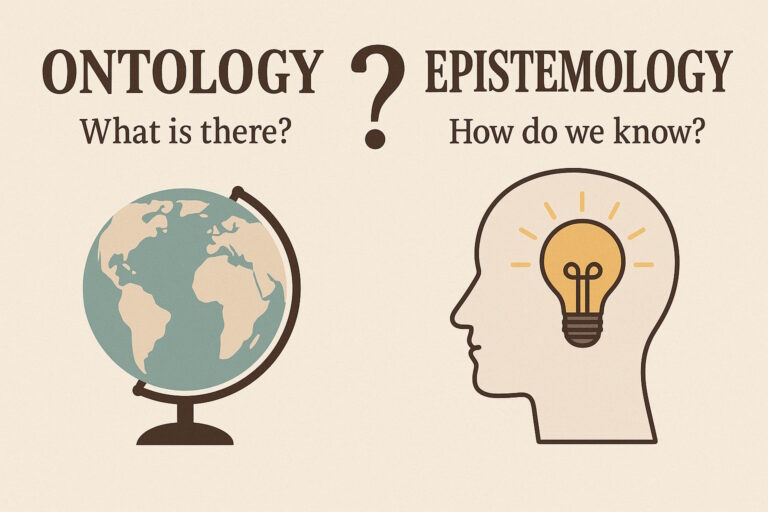In an era defined by unprecedented access to information and the ostensibly democratising potential of digital communication, the paradoxical decline of critical thinking has emerged as a significant cultural phenomenon. Despite technological advances that should facilitate deeper, more reflective public discourse, contemporary social life is increasingly characterised by allegiance rather than analysis, and ideological fervour rather than dialogue. This shift is not merely a function of digital communication itself but reflects deeper, structural transformations within late modernity. Critical thinking, long regarded as the cornerstone of intellectual inquiry, is being systematically eroded. Understanding the contours of this decline requires a sociological lens—one that interrogates the power dynamics, epistemic structures, and cultural contexts within which knowledge is produced and contested (Freire, 1970; Mills, 1959; Dewey, 1916).
Defining Critical Thinking through a Sociological Lens
While often reduced to a mere cognitive skill—an individual capacity for analysis, reflection, and sceptical inquiry—critical thinking, from a sociological perspective, constitutes a more profound mode of thought. It is an inherently relational process, deeply embedded in power structures and collective contexts, where reflexivity and the capacity to question dominant narratives are central. As thinkers like Paulo Freire (1970), John Dewey (1916), and C. Wright Mills (1959) have articulated, genuine critical thinking demands an awareness of one’s position within social structures and a recognition of how these structures shape knowledge production. Without such reflexivity, critical thinking risks becoming an instrumental, mechanistic exercise, devoid of its transformative potential.
Critical thinking also demands a form of intellectual courage. It requires individuals to confront uncomfortable truths and to challenge deeply entrenched power structures. This form of intellectual bravery is not merely a matter of personal integrity but a foundational requirement for democratic citizenship. Without it, the public sphere risks becoming an echo chamber, where only the loudest and most conformist voices prevail. As Hannah Arendt (1958) argues, the capacity to think critically is essential to the practice of freedom, as it enables individuals to resist the pressures of mass conformity and to act as genuinely autonomous agents. For Arendt, this capacity to think independently is what allows citizens to resist authoritarianism, to question propaganda, and to act as moral agents within their societies.
The Erosion of Critical Thinking in Education
Education, traditionally a site for nurturing critical faculties, has increasingly become a casualty of neoliberal instrumentalism (Bourdieu, 1986; Bernstein, 1975). The rise of ‘teaching to the test’ cultures, where measurable outcomes are prized over deep intellectual engagement, reflects the broader commodification of knowledge (Apple, 2004). This shift is not merely a curriculum change but a profound restructuring of educational priorities, reflecting economic and political imperatives that privilege immediate market utility over critical reflection.
The prioritisation of Science, Technology, Engineering, and Mathematics (STEM) disciplines, often justified through economic imperatives, has come at the expense of the humanities—fields historically associated with fostering critical, reflective thought (Nussbaum, 2010). However, it is important to avoid the romanticisation of the humanities as inherently critical or resistant. While the humanities have often been the traditional sites of critical inquiry, many STEM fields also encourage profound ethical and philosophical reflection. Bioethics, data ethics, environmental science, and artificial intelligence ethics are all examples of STEM disciplines that grapple with complex, moral questions, often challenging political and corporate power in ways that parallel critical theory.
Nevertheless, this broader shift in educational priorities reflects a reconfiguration of education as a market rather than a public good. Bernstein (1975) argued that educational systems serve not only to transmit knowledge but to reproduce the social hierarchies that sustain capitalist economies. In this context, the critical functions of education—questioning, challenging, and resisting established power structures—are marginalised in favour of standardised, testable, and marketable skills.
Moreover, this narrowing of educational priorities has broader social implications. As the humanities decline, so too does the capacity for deep, critical reflection on the nature of society itself. Without a grounding in history, philosophy, and the social sciences, students risk becoming mere technical specialists, lacking the broader social and ethical awareness required for full democratic participation (Nussbaum, 2010). This trend not only diminishes individual critical capacity but also erodes the broader public’s ability to engage in democratic debate, creating a populace that is more susceptible to simplistic political rhetoric and populist appeals (Müller, 2016).
This concern is reflected in a 2020 survey by the Reboot Foundation, which found that while 94% of respondents believe critical thinking is essential, 86% perceive a deficit of these skills in society. Notably, 60% reported not having studied critical thinking in school, and nearly a quarter felt their critical thinking skills had deteriorated since high school (Reboot Foundation, 2020). This data underscores the broader, systemic failures in education to prioritise and cultivate the critical faculties necessary for democratic participation.
Critical Thinking as a Civic Responsibility
Critical thinking is not merely an academic skill but a civic responsibility. In democratic societies, the ability to question, analyse, and reflect is essential for informed citizenship. It underpins the capacity to engage in meaningful political participation, challenge injustices, and hold power to account. Without a critical populace, democracies risk becoming mere procedural shells, where decisions are driven by ideology, emotion, or populist fervour rather than rational deliberation.
Educators like John Dewey have long argued that democracy is more than just a political system—it is a mode of associated living, enriched by communication and the exchange of diverse perspectives (Dewey, 1916). This requires citizens who can navigate complex social realities, question dominant narratives, and resist the pressures of ideological conformity. Developing this critical consciousness is not a passive process but an active, ongoing practice, grounded in a willingness to engage with uncomfortable truths and challenge deeply entrenched power structures.
Moreover, the role of critical thinking extends beyond the individual. It is essential for the health of entire societies. Without critical analysis, societies are vulnerable to demagogic leaders, populist movements, and the rise of authoritarian politics, all of which thrive on uncritical loyalty and emotional manipulation. The recent rise of populist movements across Western democracies, from Brexit to the MAGA phenomenon in the United States, underscores the dangers of a poorly informed electorate (Müller, 2016). Historical examples, such as the rise of fascist regimes in the early 20th century, demonstrate the catastrophic consequences when critical thinking is suppressed in favour of ideological conformity.
Further supporting this concern, a recent evaluative review published in the National Library of Medicine highlights the barriers to critical thinking in education, including overreliance on heuristic-based thinking and emotional reasoning. The review emphasises the need for educational frameworks that promote epistemological engagement and reflective judgment, arguing that without these, students are ill-prepared to navigate complex social and political landscapes (National Library of Medicine, 2025).
The Activist Paradox
No area of academic inquiry should ever be considered off-limits if approached with rigour, evidence, and a commitment to intellectual honesty. Academic freedom must include the right to explore controversial or politically sensitive topics without fear of censorship or reputational harm. When properly conducted, critical analysis should be fearless in its willingness to challenge even the most deeply held beliefs, recognising that intellectual growth often comes from confronting discomfort and complexity.
However, activism, despite its rhetorical commitment to challenging power, can also become a site where critical thinking is constrained. Movements that aim to disrupt existing power structures often develop internal cultures that prioritise solidarity over critique, potentially stifling the very critical engagement they seek to promote.
For example, the case of Professor Kathleen Stock is a stark illustration of how certain topics can become academic minefields. Stock, a philosopher known for her gender-critical views, faced significant professional and personal backlash for her position on the relationship between biological sex and gender identity. She argued that the rights of women to single-sex spaces and the integrity of sex-based rights should not be undermined by gender identity frameworks, a stance that led to protests, intense online harassment, and her eventual resignation from the University of Sussex (Stock, 2021). Her case highlights the growing pressures within academia to conform to dominant ideological narratives, where even the careful articulation of a minority perspective can result in reputational damage and social ostracism.
This phenomenon is not limited to gender politics. The climate movement, for example, has faced significant internal tensions over strategy, tactics, and inclusivity. Extinction Rebellion (XR), one of the most prominent climate action groups in the UK, has been criticised for its disruptive tactics, including road blockades and mass arrests, which some argue alienate potential allies and marginalised groups who bear the brunt of climate injustice. These tactics, while effective at drawing media attention, have also sparked internal debates over the ethics and efficacy of direct action versus more mainstream approaches to environmental advocacy.
The Labour Party in the UK provides another example. Historically, it has struggled with internal divisions over its ideological direction, oscillating between radical socialism and moderate social democracy. The rise of Momentum during Jeremy Corbyn’s leadership intensified these tensions, as the party’s left wing sought to reorient Labour towards its socialist roots, while its more centrist members pushed for a pragmatic approach aimed at electoral viability. This fracture was evident in the 2019 general election, when Labour’s ambitious manifesto was met with mixed reactions even within the party, contributing to a significant electoral defeat.
Similarly, the suffrage movement in the UK was marked by sharp internal divisions over tactics and strategy. The Suffragists, led by Millicent Fawcett, pursued a more moderate, constitutional approach to women’s rights, while the Suffragettes, under Emmeline Pankhurst, embraced direct action, including property damage and hunger strikes. These tactical and ideological divides reflected deeper tensions over the role of violence and civil disobedience in political struggle, illustrating the complex and often conflicted nature of activist movements.
These dynamics reflect a broader cultural anxiety about ideological purity, where internal dissent is often treated as betrayal, creating environments where critical reflection is suppressed in favour of performative solidarity. Without this internal critique, movements risk becoming mirror images of the very power structures they seek to challenge—more concerned with maintaining internal cohesion than fostering genuine critical reflection.
True critical analysis demands a willingness to engage with ideas on their own terms, challenging assumptions without collapsing them into reductive categories. Without this, activism risks becoming a closed system, where the pressures to conform stifle the diversity of thought that genuine social change requires.
Digital Dynamics and the Crisis of Dialogue
Digital platforms have profoundly reshaped the conditions under which critical thinking occurs. Unlike traditional public forums, which are often structured around principles of deliberative discourse and evidence-based reasoning, digital platforms prioritise speed, visibility, and emotional intensity. These algorithms reward certainty over ambiguity and soundbites over sustained reflection, creating a communicative environment that favours simplistic rather than complex narratives (Vaidhyanathan, 2018).
This dynamic is not merely a technological phenomenon but a sociological one, reflecting broader economic and political imperatives. As Zuboff (2019) has argued, the rise of surveillance capitalism has incentivised digital platforms to promote engagement at the expense of reflection, reinforcing confirmation biases and encouraging performative rather than critical forms of expression. In this context, the reflex to like, share, or retweet often displaces more considered forms of reflection, creating enclaves where pre-existing beliefs are reinforced rather than challenged.
Moreover, Pariser (2011) introduced the concept of the “filter bubble”, highlighting how digital platforms actively shape the information ecosystems in which public discourse unfolds. These platforms do not merely reflect social reality but actively construct it, filtering content in ways that fragment the collective process of meaning-making into isolated pockets of ideological conformity. This is not simply a matter of personal preference but a structural feature of algorithmic design, which prioritises engagement metrics over epistemic diversity.
Recent empirical studies corroborate these concerns. For example, a 2024 study by Galindo-Domínguez et al. found that while certain functions of social media—such as content creation and problem-solving—can be associated with higher levels of critical thinking, overall, the different functions of social media use were poor predictors of critical thinking. The study concluded that the best predictor of critical thinking was the competence of learning to learn, emphasising the role of self-regulation and metacognition in navigating digital environments (Galindo-Domínguez et al., 2024).
Similarly, a 2025 study by Chen et al. explored the relationship between AI tool usage and critical thinking skills, focusing on cognitive offloading as a mediating factor. The findings revealed a significant negative correlation between frequent AI tool usage and critical thinking abilities, mediated by increased cognitive offloading. This suggests that reliance on AI tools can diminish individuals’ engagement in deep, reflective thinking processes (Chen, Zhang, & Li, 2025).
However, it would be overly deterministic to present digital platforms as inherently corrosive to critical thought. While these systems undoubtedly shape the contours of public discourse, they also provide new opportunities for collective action, community building, and knowledge exchange. Platforms like Wikipedia, open-source repositories such as GitHub, and citizen journalism sites like The Bristol Cable have demonstrated the potential for digital spaces to support rather than undermine critical engagement. These platforms can foster collaborative knowledge production, enable grassroots activism, and challenge dominant media narratives, providing a counterweight to the commercial imperatives of mainstream social networks.
For example, the open-source movement has been instrumental in creating decentralised digital infrastructures that prioritise transparency, collaboration, and community control over profit. Projects like Wikipedia have become global repositories of collectively produced knowledge, challenging traditional forms of expertise and providing free access to reliable information. Similarly, citizen journalism platforms, such as Democracy Now! and the Bellingcat Investigative Network, have produced high-quality investigative work that has exposed human rights abuses, government corruption, and corporate malpractice.
Moreover, platforms like Mastodon and Blue Sky have emerged as alternatives to centralised networks like X (formerly Twitter) and Facebook, providing privacy-focused, non-commercial spaces for public discourse. These platforms, while smaller in scale, demonstrate the potential for digital spaces to foster rational and critical public debate without the distorting effects of advertising-based revenue models.
Without a deliberate effort to restore the norms of rational discourse and intellectual humility, the digital public sphere risks becoming a polarised, tribal space, where critical engagement is sacrificed to the demands of speed and spectacle. However, if digital platforms can be reimagined as commons rather than commodities, they have the potential to support rather than undermine the foundations of democratic life.
Restoring the Space for Critical Thought and Reclaiming the Culture of Inquiry
Reversing the decline of critical thinking requires more than just resisting ideological conformity or avoiding the traps of digital outrage. It demands a conscious effort to restore the capacity for independent thought and reasoned debate as the bedrock of democratic life. This means reclaiming educational spaces, public forums, and digital platforms as places where dissent is not merely tolerated but actively encouraged.
Education systems must prioritise depth over efficiency, dialogue over soundbites, and critical reflection over mere training. This involves resisting the temptation to reduce education to vocational preparation and instead fostering intellectual curiosity as a core civic virtue. It also means promoting experiential learning, encouraging students to grapple with real-world problems, and exposing them to diverse perspectives beyond their immediate social and digital bubbles. This approach not only prepares students for the workplace but equips them to navigate the complex social landscapes that characterise democratic life.
Public discourse must also be reimagined. Rather than allowing digital platforms to dictate the terms of engagement, societies should strive to build public spaces—both physical and digital—where disagreement is not merely allowed but valued as a vital component of democratic life. This includes resisting the pressures of ideological conformity, encouraging genuine dialogue, and promoting intellectual humility as a counterbalance to the certainty that drives much of today’s political and social conflict.
Reclaiming critical thinking is not merely about rejecting simplistic binaries or resisting the pressures of tribalism. It is about restoring the cultural conditions for independent and critical thought, where discomfort is seen as a necessary part of the intellectual journey, rather than a threat to ideological purity. It means building spaces where dissent is not merely tolerated but actively valued as a vital component of civic life.
By fostering educational systems that prioritise depth over efficiency, and by reimagining public discourse as a space for reasoned debate, we can rebuild the foundations of a genuinely open society—one where critical thinking thrives, and where the clash of ideas produces not just heat, but light.
References
- Apple, M. W. (2004). Ideology and Curriculum. Routledge.
- Arendt, H. (1958). The Human Condition. University of Chicago Press.
- Bernstein, B. (1975). Class, Codes and Control: Volume 3, Towards a Theory of Educational Transmissions. Routledge.
- Bourdieu, P. (1986). Distinction: A Social Critique of the Judgement of Taste. Routledge.
- Corbett, M. (2007). Learning to Leave: The Irony of Schooling in a Coastal Community. Fernwood Publishing.
- Dewey, J. (1916). Democracy and Education: An Introduction to the Philosophy of Education. Macmillan.
- Dewey, J. (1938). Experience and Education. Kappa Delta Pi.
- Freire, P. (1970). Pedagogy of the Oppressed. Herder and Herder.
- Galindo-Domínguez, H., Bezanilla, M. J., & Campo, L. (2024). Relationship between social media use and critical thinking in university students. Education and Information Technologies, 29(17), 6617–6639. https://doi.org/10.1007/s10639-024-12953-z
- Gerlich, M. (2025). AI Tools in Society: Impacts on Cognitive Offloading and the Future of Critical Thinking. Societies, 15(1), 6. https://doi.org/10.3390/soc15010006
- Mills, C. W. (1959). The Sociological Imagination. Oxford University Press.
- Müller, J.-W. (2016). What is Populism? University of Pennsylvania Press.
- Nussbaum, M. C. (2010). Not for Profit: Why Democracy Needs the Humanities. Princeton University Press.
- Pariser, E. (2011). The Filter Bubble: What the Internet is Hiding from You. Penguin.
- Reay, D. (2017). Miseducation: Inequality, Education and the Working Classes. Policy Press.
- Reboot Foundation. (2020). The Critical Thinking Crisis: A Research Report. Reboot Foundation.
- Stock, K. (2021). Material Girls: Why Reality Matters for Feminism. Fleet.
- Vaidhyanathan, S. (2018). Antisocial Media: How Facebook Disconnects Us and Undermines Democracy. Oxford University Press.
- Zuboff, S. (2019). The Age of Surveillance Capitalism: The Fight for a Human Future at the New Frontier of Power. Profile Books.



